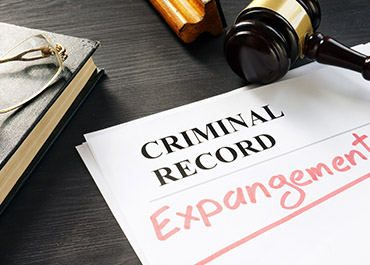
In this article, you can discover…
- The difference between sealing and expunging a record.
- The common reasons sealing a criminal record is denied.
- The legal process to seal a criminal record.
What Is The Difference Between Sealing And Expunging A Record In Colorado?
Expungement means completely erasing a criminal record, so it’s as if the offense never occurred. This is more common in juvenile cases or minor offenses, like underage drinking.
Sealing a record, on the other hand, means the record is hidden from most people. You won’t have to worry about landlords, employers, or the general public getting access to your information. However, law enforcement, prosecutors, and judges are still able to access sealed records.
Who Qualifies To Have Their Criminal Record Sealed?
Under Colorado’s Clean Slate Act, individuals with misdemeanor convictions can have their records automatically sealed after seven years. Some non-serious felony convictions may be sealed automatically after 10 years.
More broadly, cases that end in dismissal, such as when a deferred judgment results in the withdrawal of the guilty plea and the case is subsequently dismissed, are generally eligible for sealing. However, there are exceptions depending on the nature of the offense and other factors.
What Are The Most Common Reasons Criminal Record Sealing Is Denied In Colorado?
The most common reason why a criminal record wouldn’t be sealed is that certain serious offenses are considered matters of public interest. For example, sex crimes and similar violent offenses are usually excluded from sealing because the public has a strong interest in access to that information.
What Is The Legal Process To Seal A Criminal Record In Colorado?
When a client comes to me, the first step is to determine if their case qualifies for sealing under Colorado law. If it does, I prepare and file the necessary paperwork, including the order to seal the record.
Sometimes, if the case is borderline or the prosecutor contests it, a hearing may be held. However, in most cases where sealing is appropriate and the process is followed correctly, the record will be sealed.
How Can A Lawyer Increase Your Chances Of A Successful Petition To Seal?
A lawyer can improve your chances of a successful petition by thoroughly reviewing the law to confirm your case qualifies for sealing. Then they can ensure that all the proper procedures and paperwork are completed accurately and submitted on time. Hiring an attorney who has experience from the start can help avoid delays or denials.
What’s One Thing People Often Misunderstand About The Record Sealing Process?
The biggest misconception that some people have is that any criminal record is sealable or can be sealed eventually. They expect an attorney to be able to get their case sealed regardless of the circumstances. Unfortunately, that is not the case.
Colorado has specific rules regarding which records are sealable, and although the 2022 Clean Slate Act relaxed some of the requirements, sealing is ultimately a matter of timing set by law. Your attorney can’t shorten the waiting period as it’s strictly governed by the statute. But what they can do is review your case and help make sure the appropriate procedures are followed to avoid unnecessary delays.
Still Have Questions? Ready To Get Started?
For more information on sealing a criminal record in Colorado, an initial consultation is your next best step. Get the information and legal answers you are seeking by calling (310) 708-1044 today.
